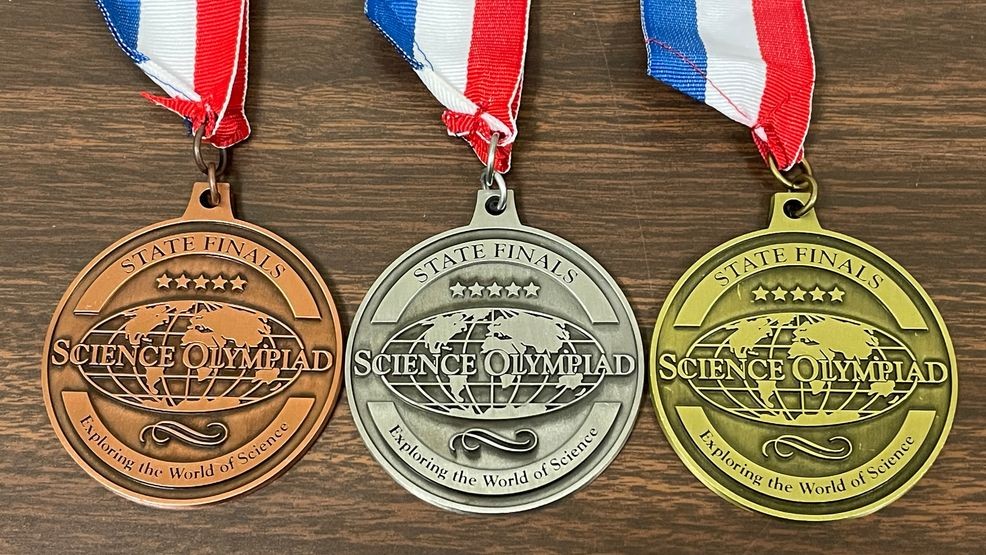From Lab to Boom: How Delaware is Supercharging Its Life Sciences Ecosystem
Science
2025-03-19 19:23:42Content

Delaware's Life Science Sector Poised for Growth: Key Policy Recommendations Unveiled
Michael Fleming, President of the Delaware BioScience Association, has released a comprehensive set of strategic policy recommendations aimed at propelling the state's life science industry forward and enhancing public health outcomes. The proposed initiatives are designed to create a more robust and innovative ecosystem for biomedical research and development.
Fleming's recommendations focus on creating a supportive environment that can attract top talent, foster cutting-edge research, and position Delaware as a competitive hub for biotechnology and life sciences. By implementing these strategic policies, the state hopes to stimulate economic growth, create high-quality jobs, and drive meaningful advancements in healthcare and medical innovation.
The proposed strategies are expected to provide a roadmap for policymakers, industry leaders, and researchers to collaborate and strengthen Delaware's position in the rapidly evolving life sciences landscape.
Revolutionizing Delaware's Life Sciences: A Strategic Blueprint for Biotech Transformation
In the dynamic landscape of biotechnology and healthcare innovation, Delaware stands at a critical crossroads of potential breakthrough and strategic development. The state's bioscience ecosystem is poised for unprecedented growth, with visionary leadership driving transformative policy recommendations that could reshape the entire regional scientific and economic infrastructure.Unlocking Delaware's Biotech Potential: A Roadmap to Innovation and Economic Prosperity
Strategic Policy Framework for Biotechnological Advancement
Delaware's biotech sector represents a complex and multifaceted ecosystem requiring nuanced, strategic interventions. The comprehensive policy recommendations developed by the Delaware BioScience Association represent a sophisticated approach to catalyzing innovation, attracting top-tier talent, and creating a robust environment for scientific research and commercial development. By implementing targeted strategies, the state can position itself as a premier destination for biotechnological research and entrepreneurship. The proposed framework encompasses multiple critical dimensions, including talent development, infrastructure investment, regulatory optimization, and financial incentives. Each element is meticulously designed to address existing challenges and create sustainable pathways for growth. Stakeholders across academic, governmental, and private sectors must collaborate to transform these recommendations into actionable initiatives that drive meaningful progress.Talent Cultivation and Workforce Development
Developing a world-class biotechnology workforce requires a holistic approach that integrates educational institutions, research centers, and industry partners. Delaware's strategy focuses on creating robust training programs, establishing specialized research grants, and developing mentorship networks that nurture emerging scientific talent. By investing in human capital, the state can build a resilient and innovative biotechnology ecosystem capable of attracting global talent and pioneering groundbreaking research. Universities and community colleges play a pivotal role in this transformation, requiring curriculum redesign, advanced laboratory facilities, and strategic partnerships with leading biotechnology companies. The goal extends beyond traditional academic training, emphasizing practical skills, interdisciplinary collaboration, and entrepreneurial mindset development.Infrastructure and Research Ecosystem Enhancement
Cutting-edge biotechnology demands sophisticated infrastructure and supportive research environments. Delaware's policy recommendations outline significant investments in laboratory facilities, technological platforms, and collaborative research spaces. These investments aim to create an interconnected ecosystem that facilitates knowledge exchange, accelerates scientific discovery, and attracts significant research funding. The proposed infrastructure strategy includes developing specialized research centers, upgrading existing facilities, and creating innovation hubs that bring together researchers, entrepreneurs, and investors. By establishing a comprehensive support system, Delaware can position itself as a competitive player in the global biotechnology landscape.Financial Incentives and Economic Development
Economic stimulation represents a critical component of Delaware's biotechnology strategy. The proposed policy framework includes targeted financial incentives designed to attract venture capital, support startup initiatives, and provide sustainable funding mechanisms for emerging biotechnology enterprises. Tax credits, research grants, and public-private partnership models are among the recommended approaches to stimulate economic growth. These financial strategies aim to create a nurturing environment for biotechnology innovation, reducing barriers to entry and providing entrepreneurs with the resources necessary to transform scientific discoveries into commercially viable solutions. By implementing a comprehensive financial support system, Delaware can accelerate its biotechnology sector's growth and global competitiveness.Regulatory Optimization and Compliance
Navigating the complex regulatory landscape is crucial for biotechnology advancement. Delaware's policy recommendations focus on streamlining regulatory processes, reducing administrative barriers, and creating a more responsive governance framework. By developing clear, efficient regulatory pathways, the state can attract innovative companies and facilitate faster translation of research into practical applications. The proposed regulatory approach emphasizes transparency, collaboration, and adaptability, ensuring that scientific innovation can progress without unnecessary bureaucratic constraints while maintaining rigorous safety and ethical standards.RELATED NEWS
Science

Beyond the Lab Coat: How Gary Larson's Far Side Transformed a Scientist's Worldview
2025-03-15 23:00:26
Science

Science Under Siege: Budget Cuts Spark Existential Debate in Research Community
2025-05-05 15:11:46
Science

Sci-Fi Meets Cultural Preservation: Beijing Forum Sparks Global Dialogue on Diversity
2025-04-07 06:27:00





